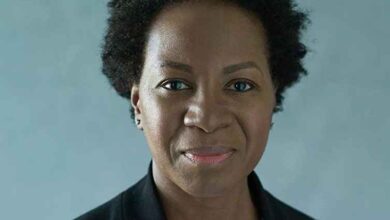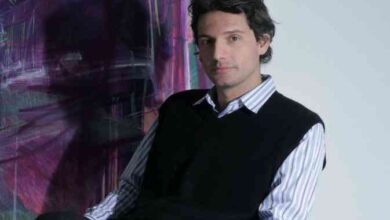Paul Goodwin: The Remarkable Journey of a Conductor Bridging Musical Eras

Paul Goodwin is a distinguished figure in the world of classical music, celebrated for his exceptional versatility as both a conductor and a former baroque-oboe specialist. His name resonates with musicians, scholars and audiences who appreciate historically informed performance and high-level orchestral interpretation. What makes Paul Goodwin stand out is his rare ability to move seamlessly between early music and contemporary repertoire, bringing authenticity, imagination and emotional clarity to every performance he leads.
Early Life and Musical Foundations
Paul Goodwin was born in Warwick, England, in 1956. His early exposure to the arts and his natural affinity for music set him on a path that would eventually shape a long and meaningful career. His formal education in composition at the University of Nottingham gave him a foundation in the structural and expressive dimensions of musical writing. That foundation, combined with performance studies at the Guildhall School of Music & Drama in London, equipped him with both intellectual insight and technical finesse.
Guildhall became a pivotal place in his development. There, he immersed himself not only in the modern oboe but also in the baroque oboe, an instrument central to historically informed performance. Further specialist training in Vienna deepened his understanding of period technique, articulation and sound production. These formative years allowed him to cultivate a unique perspective on music: one that honoured history but also embraced interpretation and creativity.
Career as a Baroque Oboist
Before he became widely known as a conductor, Paul Goodwin built a respected career as a baroque oboist. He performed with several leading period-instrument ensembles, including The English Concert and London Classical Players. These ensembles were at the forefront of the movement to revive eighteenth-century performance practices, making his involvement both influential and historically significant.
Goodwin’s playing was marked by purity of tone, expressive nuance and stylistic precision. His mastery of the baroque oboe placed him at the centre of early-music performance, and he contributed to recordings and concerts that helped bring forgotten or under-appreciated works back into the public consciousness. His time as a performer also provided him with a deep understanding of ensemble interplay, ornamentation, phrasing and the subtleties of classical rhetoric within music. These qualities later became hallmarks of his conducting style.
Transition into Conducting
In the mid-1990s, Paul Goodwin made the bold decision to transition from a full-time instrumental career into conducting. This shift was not merely a professional adjustment but a transformation that broadened his musical purpose. He studied conducting with the legendary Finnish pedagogue Jorma Panula, whose students include some of the world’s most accomplished conductors.
Armed with this new training, Goodwin began taking on conducting engagements that allowed him to explore larger-scale repertoire. Soon he established himself as a conductor capable of handling both baroque and symphonic works. His background as an oboist gave him a unique advantage: he approached orchestral direction with a structural understanding of breath, phrasing and musical logic. His interpretations were precise, clear and elegant, yet always infused with warmth and expressive depth.
Major Positions and Leadership Roles
Paul Goodwin’s rise in the world of conducting led to several prestigious appointments. He served as Associate Conductor of the Academy of Ancient Music, one of the world’s most respected period-instrument ensembles. His work there strengthened his connection to historically informed performance and allowed him to refine his technique while working closely with musicians who shared his stylistic approach.
He also held the role of Principal Guest Conductor with the English Chamber Orchestra, collaborating with world-renowned soloists and taking part in influential tours and recordings. Beyond the UK, Goodwin became Artistic Director and Principal Conductor of the Carmel Bach Festival in California, guiding the festival towards imaginative programming and fresh interpretations of baroque repertoire.
These roles solidified Goodwin’s reputation as a conductor of depth, skill and artistic courage.
A Distinctive Artistic Approach
Paul Goodwin’s artistic approach blends tradition with innovation. His early-music background informs his phrasing, tempo choices and attention to historical detail. Yet he never treats historical authenticity as a rigid set of rules. Instead, he views it as a foundation from which expressive modern performance can grow.
His style is often described as transparent, flexible and sensitive to nuance. He brings clarity to complex textures, enabling audiences to hear inner lines that might otherwise be overshadowed. His use of dynamics is thoughtful, shaped by both historical insight and emotional intention. Perhaps most importantly, he is known for drawing exceptional playing from orchestras, encouraging a sense of unity, refinement and expressive joy.
Repertoire Range
One of Goodwin’s defining strengths is his vast repertoire range. While deeply associated with baroque and classical music, he is equally at home with newly composed works, romantic symphonies and modernist scores. His ability to cross stylistic boundaries makes him a rare figure in today’s specialist-heavy musical landscape.
He has conducted operas, chamber orchestras and full symphony orchestras in Europe, the United States and beyond. His programmes often include imaginative pairings, such as placing early music alongside contemporary compositions to highlight shared emotional or structural themes. This kind of creative programming keeps audiences engaged and encourages new perspectives on older works.
Contribution to Recording and Media
Paul Goodwin’s discography reflects the versatility and depth of his musicianship. He has recorded both early music and modern compositions, working with acclaimed ensembles and vocal soloists. His interpretations are praised for their clarity, warmth and thoughtful pacing.
His recordings of early music, especially the works of Handel and Mozart, are celebrated for their historically informed yet emotionally compelling interpretations. His modern recordings reveal his ability to navigate contemporary harmonic language while maintaining a strong sense of musical architecture.
Through these recordings, Goodwin has preserved performances of exceptional quality, ensuring that his interpretations remain accessible to global listeners and future generations of musicians.
Commitment to Education and Youth Development
In addition to his performing and recording work, Paul Goodwin is admired for his dedication to teaching and nurturing young talent. He has led training programmes, masterclasses and workshops for youth orchestras across Europe and the Americas. His approach to education mirrors his artistic values: thoughtful, historically aware, expressive and focused on developing each musician’s unique voice.
Goodwin understands that classical music’s future depends on gifted young performers who can balance technical mastery with curiosity and creativity. His work with emerging musicians contributes meaningfully to the continuity and evolution of the classical tradition.
Global Influence and Performances
Paul Goodwin’s influence extends far beyond the UK. He has conducted orchestras in Germany, Spain, France, the United States, Mexico, Italy, the Netherlands, Hong Kong and many other regions. His international presence highlights the universal appeal of his artistry and his ability to connect with musicians from diverse cultural backgrounds.
Whether performing Bach, Mozart, Mendelssohn or contemporary scores, Goodwin adapts effortlessly to different ensembles, acoustic environments and performance traditions. His global work has helped bring historically informed interpretation to audiences who may not have experienced it before.
Legacy and Continuing Impact
Paul Goodwin’s legacy is rich and multifaceted. He has shaped the performance of early music, advanced the role of historically informed interpretation and made significant contributions to symphonic, operatic and contemporary repertoire. He is a conductor who respects the past without becoming bound by it, allowing classical music to remain alive, relevant and emotionally powerful.
His influence as a teacher, mentor and musical thinker ensures that his impact will continue long after individual performances fade. Musicians who work with him often speak of how his insights shape their understanding of phrasing, structure and musical storytelling.
Conclusion
Paul Goodwin stands as one of Britain’s most distinctive and respected conductors, admired for his stylistic versatility, historical insight and expressive leadership. From his early years as a baroque-oboe specialist to his international career as a conductor, he has shown a commitment to artistry that blends intellect, feeling and innovation. His work reminds us that classical music is a living, constantly evolving art form—one that becomes richer when past and present converse.



